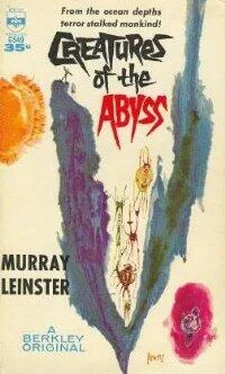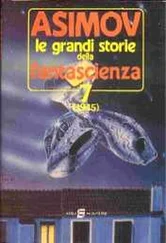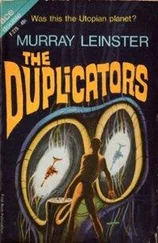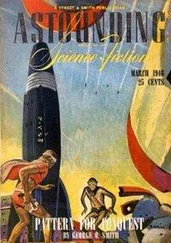It plunged down beyond the trees on the far side of the lagoon. Or so it seemed. Actually, it might have plunged into the sea, miles away. Then there was a faint noise which was something between a rumble and a hiss. The sound went back across the sky along the path the fireball had followed. It died away.
There was silence. Shooting stars as bright as this one are rare. Most meteors are very small, but they are visible because of the attrition produced by their falling bodies in the atmosphere that sets them on fire. They usually appear at around a seventy-mile height, but frequently they are vaporized before they have descended more than thirty miles. Sometimes they explode in midair and strew the earth with fragments. Sometimes they strike ground, leaving monstrous craters where they have fallen. Most meteors fall in the sea. But a meteor has to be at least down to twenty miles from sea level before its sound can be heard.
Someone came out of a building and moved toward the wharf, an electric lantern bobbing in his hand. Halfway out to the yacht he called, “Davis?”
“Yes,” said Davis. “What’s happened?”
“Nothing,” said the man ashore. “We were watching for that bolide. It was picked up by space radar a couple of hours ago, but then we figured it to land farther on than it did.”
It was an educated voice, a scholarly voice.
“Big?” asked Davis as the light drew nearer.
“We’ve seen them bigger, but not much.” The man with the lantern reached the end of the wharf. “Glad to see you. We’ve got some fish for you, by the way. We caught them in the lagoon. They’re waiting for you in the deep-freeze. There’s a Macrourus violaceus, if we read the books right, and a Gonostoma polypus. They match the pictures, anyhow. What do you make of that?”
“You haven’t got them!” said Davis incredulously. “You can’t have them! I’m no fish specialist, but those are abyssal fish! They can only be caught at a depth of two or more miles!”
“We caught ’em,” said the man cheerfully, “on a hook and line, in the lagoon, at night Come ashore! Everybody’ll be glad to see you.”
Davis protested, “I won’t believe you’ve got that kind of fish until I see them!”
The man with the lantern stepped down to the yacht’s deck.
“All you’ve got to do is look in the mess hall deepfreeze. The cook’s complaining that they take up space. Nobody wants to find out if they’re good to eat. Most unwholesome-looking creatures! And how are you, young lady?” he asked Deirdre. “We’ve missed you. Tony, Nick, Jug…”
Deirdre introduced Terry.
“Ha!” said the man. “They got you enlisted, eh? They were talking about it a month ago. You’ve solved the problem by now, I daresay. Including how these very queer fish happen to be in our lagoon instead of miles down in the Luzon Deep. When you find time, tell me!”
“I’ll try,” said Terry reservedly.
The man went down into the after-cabin and Davis followed him. Deirdre said amusedly:
“Dr. Morton’s a dear! Don’t take him seriously, Terry! He loves to tease. He’ll hound you to tell him how deep-sea fish got up here and into a shallow lagoon. Please don’t mind!”
“I won’t,” said Terry. “I’ll tell him tomorrow, I think. I believe now I know how it happened, but I want to check it first.”
When Terry awoke, next morning, the reflections of sunlight on water came in through the porthole of his cabin. He watched the shimmering contortions of the light spots on the wall. His thoughts went instantly back to the subject they’d dwelt on before he went to sleep.
The man with the spectacles—Dr. Morton, but his doctorate was in astronomy instead of medicine—had said that Deirdre and his father had discussed enlisting him in the Esperance’s company a month ago. Deirdre’d come into the shop of Jimenez y Cia. only four days before. Some of the delay could have been caused by time spent in simple sailing from one place to another, mostly on wholly futile errands. They’d gotten a fish-driving paddle at Alua. That’d take some days of sailing each way. Apparently, they’d been fumbling at some vague idea of trying to find out what would produce the facts they’d noted. ‘Very queer fish,’ Davis had said of some of the catches La Rubia had made.
The abyssal fish mentioned last night would be very queer fish to catch in a lagoon. Yes.
He lay still, surveying other aspects of the situation. Davis had called on an aircraft carrier for electronic items, and the Esperance was in constant touch with somebody by short-wave radio. It might be the same carrier. The Manila police department was on very cordial terras with Davis, and the staff of a satellite-tracking installation saved odd specimens of fish for him.
The Esperance’s enterprise was plainly not a brand-new adventure. It had been carried on for some time. They had had technical aid of the very highest caliber, but they hadn’t gotten anywhere yet. It did appear that Terry had added a minor specialty to the arsenal of investigative techniques. Without the data gathered on recorder-tape, their idea of the events of two nights before would be very different. The sea would have seemed very bright then the glowing area would have been noted to have grown smaller, and something resembling a whale would have been seen leaping high above the water. Then the brightness would have faded out. It would have been mysterious enough, but an entire aspect of the phenomenon would have gone unnoticed. There was still no answer to any of the far-reaching questions Terry had asked himself, but most of them had never been asked before. Sea noises had proved to be closely connected to whatever had to be found out. What was known about them was due to his findings. He’d established a new frame of reference.
And he’d discovered the solution of a minor problem before the problem was even stated. He had only to prove it Then, of course, there would be other problems arising from it.
He got up, put on swimming trunks, and duck trousers over them. He slipped into a sweat shirt and went upon deck. Deirdre hailed him.
“Good morning! Everybody’s over at the tracking station, arguing about the bolide that went over last night. According to the radar, it plunged into the sea, miles and miles away.”
“What should it have done?” asked Terry. “I’m not familiar with meteorites. Are they planning to dive for it?”
“Hardly!” Deirdre laughed. “It landed in the Luzon Deep.” She waved a hand in an inclusive gesture. “This island’s on the brink of it. A bathyscaphe might go down there—in fact, I think it’s scheduled; you know, the one I said was coming to Manila on the oceanographic ship? A bathyscaphe can go that deep, but it’s not likely to hunt for meteorites.”
“Ah,” said Terry judicially. “Then what difference does it make where it hit?”
“It didn’t fall the way it should have,” said Deirdre. “It was spotted by space radar away out, and they tried to compute its path, but they figured it wrong. Now they’re trying to make it come out right by allowing for the effect of the earth’s magnetic field on a metal meteorite. They’re arguing and waving equations at each other.”
“Let them,” said Terry. “I have trouble enough with fish. Do you think I could borrow a boat?”
“We’ve always been able to,” said Deirdre. Then she added, “I’ve kept your breakfast hot. While you eat it I’ll get a boat.”
She went below, and instants later was up again.
“I have a feeling,” she said, “that something interesting is going to happen. I’ll be back.”
She swung lightly to the wharf and headed for land. Terry went below, to find his breakfast laid out on the cabin table. He settled down to it, but first pulled a book from the shelves. It was a volume on oceanography, and its pages showed that it had often been referred to. He found the Luzon Deep described. Its area was relatively small, a mere ninety-mile-long chasm in the sea-bed. But it was second only to the Mindanao Deep in its soundings, and a close second at that. Its maximum depth was measured at twenty-seven thousand feet. Over five miles. There was a mention of Thrawn Island as being on the very edge of the Deep. According to the book, the island was the peak of one of the most precipitous and tallest submarine mountains in the world. Three miles from where Thrawn Island lay, there were soundings of twenty-eight thousand feet and upward. This depth extended as a trench. …
Читать дальше










